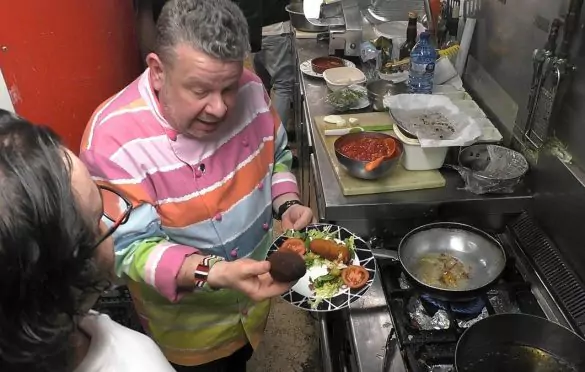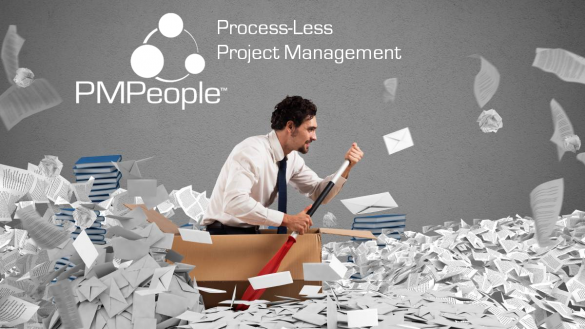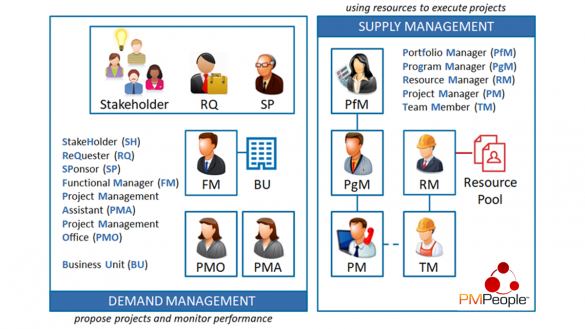Project Management has changed from Outputs to Outcomes
Everyone can cook, but not everyone is a cook. Everyone can sing, but not everyone is a singer. Our profession is no different: everyone can track teamwork, but this does not make them project managers. If we need to know if a cook is a good professional, we do not need evidence to ensure that certain procedures are followed. We check the value result: we taste his or her food. The 8 project management performance domains in PMBOK7 makes everybody can tell if the project is being well managed.
Artificial Intelligence in Project Management Tools
As IA has already transformed the digital advertising industry, we believe it can also plan projects, elaborate reports, assign tasks, automate notifications and recommendations, evaluate people’s performance, discover issues, analyze trends, and so on. However, it is still too early to talk about artificial intelligence in the field of professional project management. In order for software to assist us in planning baselines, tracking progress, suggesting actions, anticipating issues, evaluating performance, etc., it is essential to have a historical database of projects within the organization’s context, on the organization’s private servers.
Process-Less Project Management
Managers don’t buy project management. They approve projects but don’t assign anyone to oversee the big picture, anticipate problems, make forecasts, be accountable, and ultimately, take responsibility for achieving success. They see that the project team self-manages through meetings, which they sometimes attend for information and other times to address issues on the fly. A project professional would know how to do it better, but since we have a reputation as bureaucrats (documents, processes, workflows, and more meetings), they prefer crises, that is, reacting by improvising when problems arise and it’s too late.
IT and Business working together in agile projects
Many software projects suffer from the clash between IT and Business departments:
1) The client requests a new feature.
2) The team develops the code, tests it, and release it.
3) The client rejects the work, undermining the team’s morale.
4) The supportive project manager takes the hit, encourages the team, and passes the ball back to the client.
An effective project manager should know how to change the game, getting Business and IT to collaborate effectively, managing the work as an agile project.
Value Driven Project Management
While a project is on execution, the project professional makes decisions to optimize value delivery, which will come during the operational stage—well after the project has been closed. Value delivery is straightforward in agile projects, as management relies on continuous interactions with stakeholders who validate increments toward the final result. In predictive projects, it is possible for value to be delivered after a failed project, or vice versa: the project succeeds but no value is delivered. Through role-based collaboration, PMOs can delegate many project management activities, having more time to anticipate issues and deliver value.
The Future of Work (in Projects)
The presentation of Microsoft 365 Copilot made us imagine a future with AI assisting knowledge workers. Will project teams work with AI in the future? If you are a project professional, don’t be afraid: AI will not replace you. However, another professional who are more proficient in technology may take over. In the future, PPM tools will include AI. In the meantime, as a project manager, you should master tools for 1) self-organize; 2) team collaboration; 3) schedule and control time and costs; and 4) manage multiple projects with many people.
Individuals and Interactions over Processes and Tools (in Projects)
Process-driven project management has been effective until the 21th century. However, today’s projects require people collaboration for many compelling reasons: 1) Requirements are usually not clear enough, and project scope has to be progressively elaborated; 2) Controlling changes, time and cost is less important than value delivery and meeting the business goals; 3) Managers need to make informed real-time decisions, anticipating issues while there are still options to correct project performance, and they don’t have time to read comprehensive documentation from dozens or hundreds of projects; 4) Just one person to manage the whole project is not effective: collaboration is needed because the best solutions may come from one of many stakeholders.
People Forget Project Management Failures
PMI has published the list with the most influential projects of 2022. The second place went to the James Webb Space Telescope. This project was a management failure because it ended up with an over cost of $8bn, a final delay of 12 years, and it was about to be cancelled in 2011. Fortunately, the launch last December was a complete success. It started sending images in July, and it will continue operation for 5-10 years. When projects are transitioned to operations, and everybody can see the results and the value delivered, people tend to forget the management failures of the project phase. As project professionals, even if we say that a project has been very influential, we have to learn from mistakes to not make them again.
Collaborative Roles on Project Management
In the Project Economy, projects need people collaborating as a team from different perspectives. PMPeople does not prevent direct communication needed at all projects. However, it can optimize management helping the interaction between people belonging to the extended project team.
Performance Appraisal for Project Managers based on PMBOK7
Everyone can cook, but not everyone is a cook. Our profession is no different: everyone can organize tasks, but not everyone is a project manager. Normal people –non PMP®– should be able to tell if a project manager is a good or a bad professional. PMI® published a practice standard named “Project Manager Competency Development Framework” (PMCDF), based on the processes of PMBOK5. We can anticipate the next edition of the PMCDF will be aligned to PMBOK7, implying all stakeholders will be able to check good or bad project performance on 8 performance domains.
Categories
- Business (16)
- Demand Management Roles (14)
- Frequently Asked Questions (7)
- Guide (26)
- People (23)
- Assignments (2)
- Feedback (2)
- Project Team (3)
- Tracking Time And Expenses (2)
- Process (9)
- Closing (2)
- Executing And Controlling (2)
- Planning (1)
- Project Management (67)
- Management Frameworks (18)
- Organization Owner (OO) (3)
- Project Economy (54)
- Tools (19)
- Supply Management Roles (5)
- Training (6)
- Uncategorized (1)












